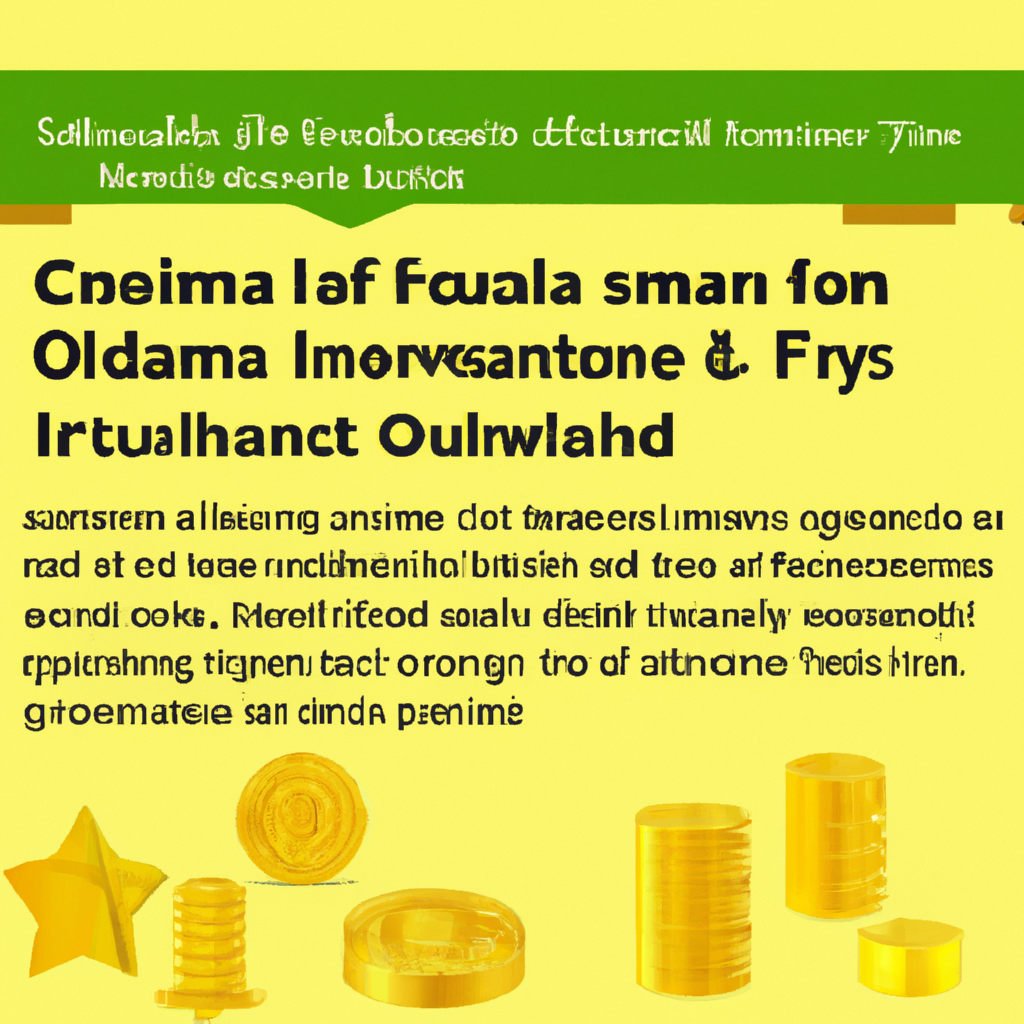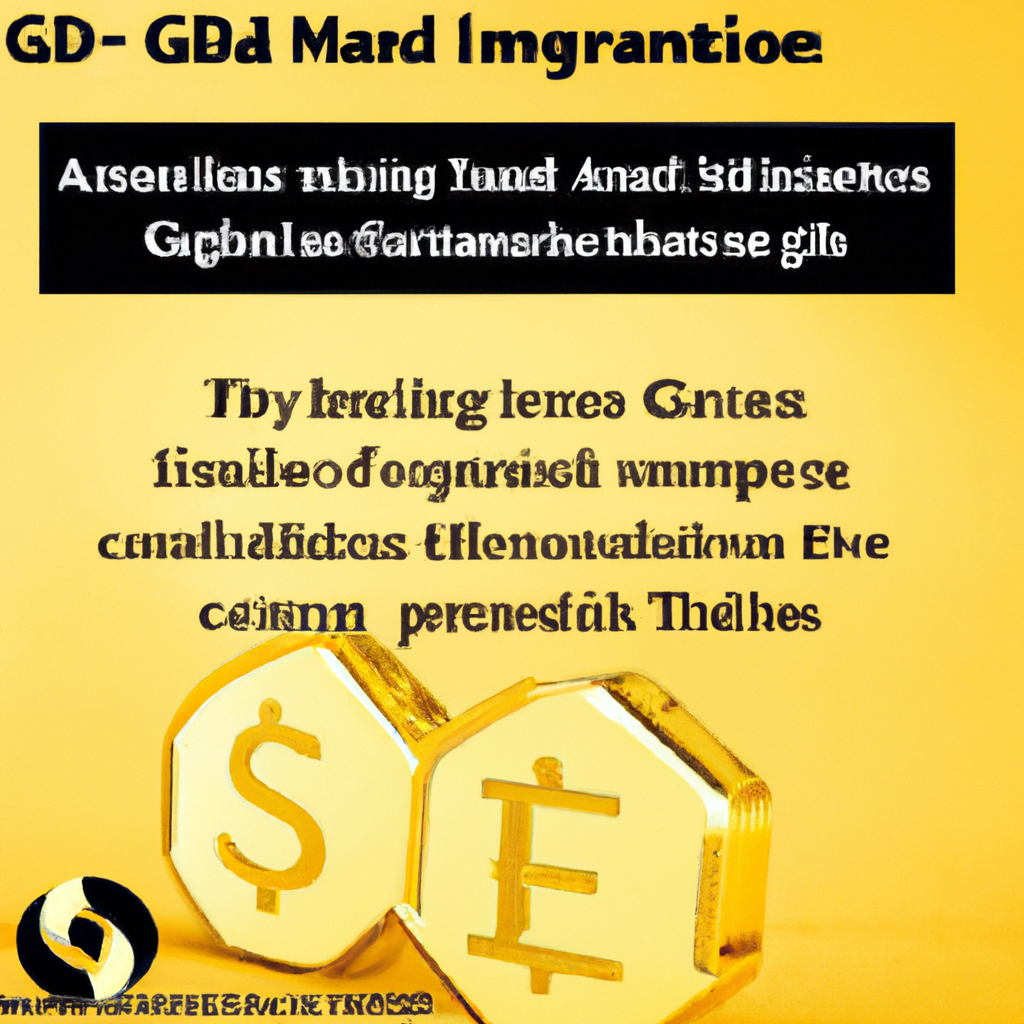If you’re looking to invest in Islamic-compliant gold investment products in Malaysia, you’ve come to the right place. In this article, we’ll explore the various options and strategies available to you, ensuring that your investment aligns with your religious beliefs. From understanding the principles of Islamic finance to discovering the different types of gold investment products, we’ll provide you with all the information you need to make informed decisions and grow your wealth in a halal and ethical manner. So let’s dive in and explore the world of Islamic-compliant gold investments in Malaysia!

Overview of Islamic-compliant gold investments in Malaysia
Introduction to Islamic finance principles
Islamic finance principles are based on the principles of Islamic law or Shariah, which prohibits certain activities such as usury (riba) and speculation (gharar). Islamic finance promotes ethical investments that are in line with Islamic principles. In Malaysia, Islamic-compliant gold investments have gained popularity among investors who seek to adhere to Shariah principles while enjoying the benefits of investing in gold.
Demand for Islamic-compliant investment products
There is a growing demand for Islamic-compliant investment products, including gold, in Malaysia. This is driven by the country’s large Muslim population and the increasing awareness of the importance of Shariah compliance in financial transactions. Islamic-compliant gold investments provide an alternative to conventional gold investments for Muslim investors who want to align their investments with their religious beliefs.
Benefits of investing in Islamic-compliant gold products
Investing in Islamic-compliant gold products offers several benefits. Firstly, it provides a way for Muslim investors to diversify their portfolios and hedge against inflation. Secondly, Islamic-compliant gold investments often come with greater transparency and disclosure requirements, which can provide investors with peace of mind. Lastly, investing in gold can provide a safe haven during times of economic uncertainty and serve as a store of value in the long term.
Understanding Shariah-compliant gold investment options
Gold savings accounts
Gold savings accounts are a popular Islamic-compliant gold investment option in Malaysia. These accounts allow investors to buy and hold gold in their accounts, with the option to convert the gold into physical form or currency at any time. Gold savings accounts are managed by financial institutions and offer investors the convenience of buying and selling gold without the need for physical storage.
Gold ETFs and mutual funds
Gold exchange-traded funds (ETFs) and mutual funds offer another way for investors to gain exposure to gold without directly owning physical gold. These funds pool investors’ money to invest in gold-related assets, such as gold bullion or shares in gold mining companies. By investing in gold ETFs or mutual funds that are Shariah-compliant, investors can tap into the potential returns of the gold market while adhering to Islamic principles.
Physical gold and gold coins
For investors who prefer to have physical possession of gold, investing in physical gold or gold coins is an option. Shariah-compliant physical gold investments require strict adherence to certain guidelines, such as ensuring that the gold is of at least 99.5% purity and complying with the rules of proper storage and handling. Investors can choose to purchase gold bars or gold coins from reputable dealers who offer Shariah-compliant products.
Gold certificates
Gold certificates are another form of Islamic-compliant gold investment. These certificates represent ownership of gold without the need for physical possession. Investors can purchase gold certificates from financial institutions, which hold the gold on behalf of the investors. Gold certificates provide a convenient way for investors to invest in gold while ensuring compliance with Islamic finance principles.
Choosing a Shariah-compliant gold investment platform or provider
Researching reputable financial institutions
When selecting a Shariah-compliant gold investment platform or provider, it is essential to conduct thorough research on the reputation and track record of the financial institution. Look for institutions that have a strong presence in the market, good customer reviews, and a history of offering Shariah-compliant products. This will help ensure that your investments are in safe hands.
Checking for Shariah-compliance certification
Ensure that the chosen gold investment platform or provider is certified as Shariah-compliant by a recognized Shariah advisory board or authority. Shariah-compliance certification provides assurance that the investment products offered adhere to Islamic principles and do not involve any prohibited activities. This certification is crucial for investors who want to ensure that their investments are in line with their religious beliefs.
Evaluating fees and costs
Before committing to a Shariah-compliant gold investment platform or provider, it is important to evaluate the fees and costs associated with the investment. Consider the management fees, transaction fees, and any other charges that may be incurred throughout the investment period. Comparing the costs of different providers will help you make an informed decision and maximize your potential returns.
Reviewing customer reviews and ratings
Take the time to read customer reviews and ratings of the gold investment platform or provider. These reviews can provide valuable insights into the quality of service, customer satisfaction, and overall experience with the provider. Look for any red flags or recurring issues mentioned in the reviews, as this can help you avoid potential pitfalls and choose a reliable and reputable provider.
Opening an Islamic gold investment account
Contacting the chosen financial institution
Once you have chosen a Shariah-compliant gold investment platform or provider, contact the institution to initiate the account opening process. Most financial institutions provide multiple channels of communication, such as phone, email, or online chat. Reach out to the institution and express your interest in opening an Islamic gold investment account.
Understanding the account opening process
The financial institution will guide you through the account opening process, which typically involves completing an application form and providing the necessary documentation. The documentation required may include proof of identity, proof of address, and other supporting documents. The institution will provide you with detailed instructions and assistance throughout the process.
Providing necessary documentation
Gather the required documentation as specified by the financial institution. Ensure that the documents are valid and up to date. Commonly required documents include a copy of your identification card or passport, utility bills, and bank statements. Submit the necessary documents to the financial institution as per their instructions.
Depositing funds into the account
Once your Islamic gold investment account is opened, you will need to deposit funds into the account to start investing in gold. The financial institution will provide you with the details of how to deposit funds, which may include bank transfer or other payment methods. Follow the provided instructions to make the required deposit and begin your Islamic-compliant gold investment journey.

Managing your Islamic-compliant gold investments
Monitoring the performance of gold prices
Keep track of the performance of gold prices to assess the value of your investment. Regularly monitor the gold market to gain insights into price trends, market conditions, and potential risks. This will help you make informed decisions about when to buy or sell gold, and to optimize your investment returns.
Understanding the impact of global economic factors
Gold prices can be influenced by various global economic factors, such as inflation, interest rates, geopolitical events, and currency movements. Stay informed about these factors and how they can impact the price of gold. Understanding the correlations between gold and other economic indicators will help you make proactive investment decisions and manage your Islamic-compliant gold investments effectively.
Considering diversification strategies
Diversification is a key principle in investing, including Islamic-compliant gold investments. Consider diversifying your gold investments by allocating your funds across different types of gold investment options, such as gold savings accounts, gold ETFs, and physical gold. Diversifying your portfolio can help mitigate risks and maximize potential returns.
Periodically reviewing and rebalancing your portfolio
Regularly review your Islamic-compliant gold investment portfolio to ensure that it aligns with your investment goals and risk tolerance. Periodic portfolio reviews will help you identify any adjustments or rebalancing needed to maintain an optimal asset allocation. Consult with a financial advisor for guidance on reviewing and rebalancing your portfolio to achieve your long-term investment objectives.
Tax implications and regulations for Islamic-compliant gold investments
Tax treatment of gold investments
The tax treatment of Islamic-compliant gold investments in Malaysia may vary depending on factors such as the holding period, type of investment, and applicable tax regulations. It is important to consult with a tax advisor or refer to the relevant tax authority guidelines to understand the tax implications and obligations related to your gold investments.
Regulatory framework for gold investment products
Gold investment products, including Islamic-compliant options, are subject to regulations set by regulatory authorities such as the Securities Commission Malaysia and the Shariah Advisory Council. These regulations aim to ensure investor protection, fair market practices, and adherence to Shariah principles. Familiarize yourself with the regulatory framework governing gold investments to ensure compliance and safeguard your investments.
Reporting requirements for gold investments
As an investor in Islamic-compliant gold products, you may be required to fulfill reporting obligations to regulatory authorities or financial institutions. These reporting requirements may include providing periodic investment statements, disclosure of beneficial ownership, or reporting of significant transactions. It is important to understand and fulfill these reporting obligations to remain compliant with regulatory requirements.

Risks and considerations of Islamic-compliant gold investments
Price volatility and market risk
Gold prices can be highly volatile, influenced by various factors such as global economic conditions, investor sentiment, and market speculation. Investors should be prepared for price fluctuations and the associated market risks when investing in gold, including the possibility of capital losses in the short term.
Liquidity and ease of selling
Depending on the type of Islamic-compliant gold investment, liquidity and ease of selling can vary. Gold savings accounts and gold certificates typically offer ease of selling, as they can be liquidated quickly. However, physical gold and gold coins may require more time and effort to sell, depending on market conditions and demand. Consider the liquidity aspect when choosing your preferred gold investment option.
Counterparty risk
Investing in gold through financial institutions or gold investment providers exposes investors to counterparty risk. This risk arises from the possibility of the financial institution or provider defaulting or becoming insolvent. It is important to choose reputable and well-established institutions with a track record of financial stability to minimize counterparty risk.
Currency exchange risk
For investors holding gold in currencies other than their local currency, currency exchange risk may come into play. Fluctuations in exchange rates can affect the value of the gold investment when it is converted back to the local currency. Consider the potential impact of currency exchange risk and factor it into your investment decision-making process.
Islamic gold investment strategies and tips
Long-term investment approach
Islamic-compliant gold investments are well-suited for a long-term investment approach. Gold has historically demonstrated its ability to maintain value and act as a safe haven during economic downturns. By adopting a long-term investment approach, investors can benefit from the potential growth of gold prices over time and ride out short-term market fluctuations.
Dollar-cost averaging
Dollar-cost averaging is an investment strategy that involves investing a fixed amount of money at regular intervals, regardless of market conditions. This strategy can be applied to Islamic-compliant gold investments by consistently allocating funds to gold at predetermined intervals. Dollar-cost averaging helps investors mitigate the risk of buying at peak prices and allows for the accumulation of gold over time.
Setting realistic investment goals
Before investing in Islamic-compliant gold, it is important to set realistic investment goals. Consider factors such as your risk tolerance, investment timeframe, and financial objectives. By setting clear and achievable investment goals, you can align your gold investments with your overall financial plan and make informed decisions based on your specific circumstances.
Consulting with a financial advisor
Seeking guidance from a qualified financial advisor can be beneficial when investing in Islamic-compliant gold. A financial advisor can provide personalized advice, assist with portfolio management, and help you navigate the complexities of Islamic finance principles. Their expertise can help you optimize your gold investments and achieve your financial goals.

Frequently asked questions about Islamic-compliant gold investments in Malaysia
What makes a gold investment Islamic-compliant?
Islamic-compliant gold investments adhere to Shariah principles, which prohibit activities such as usury (riba) and speculation (gharar). To be considered Islamic-compliant, gold investments must meet certain criteria, such as ensuring gold purity, transparency in transactions, and compliance with the guidelines of recognized Shariah advisory boards or authorities.
Are gold savings accounts considered Shariah-compliant?
Gold savings accounts offered by reputable financial institutions can be considered Shariah-compliant as long as they meet the necessary criteria set by Shariah advisory boards. These criteria include guidelines on gold purity, transparency in transactions, and adherence to Shariah principles.
Can I hold physical gold in my possession?
Yes, it is possible to hold physical gold in your possession as an Islamic-compliant gold investment. However, there are specific guidelines related to the purity and handling of gold to ensure compliance with Shariah principles. When holding physical gold, it is important to follow the necessary guidelines and ensure proper storage and security.
Is there a minimum investment requirement for Islamic gold products?
The minimum investment requirement for Islamic gold products may vary depending on the chosen financial institution or provider. Some products may have a minimum investment amount, while others may allow investors to start with smaller amounts. It is important to review the investment requirements of different products and choose the one that aligns with your financial capabilities.
Conclusion
Investing in Islamic-compliant gold products in Malaysia provides Muslim investors with the opportunity to diversify their portfolios, hedge against inflation, and align their investments with their religious beliefs. By understanding the principles of Islamic finance and the various options available, investors can make informed decisions about their gold investments. It is important to research reputable providers, ensure compliance with Shariah principles, monitor the performance of gold prices, and consult with a financial advisor to optimize your Islamic-compliant gold investment journey. Always consider the risks and nuances associated with gold investments and set realistic investment goals to achieve long-term financial success.









